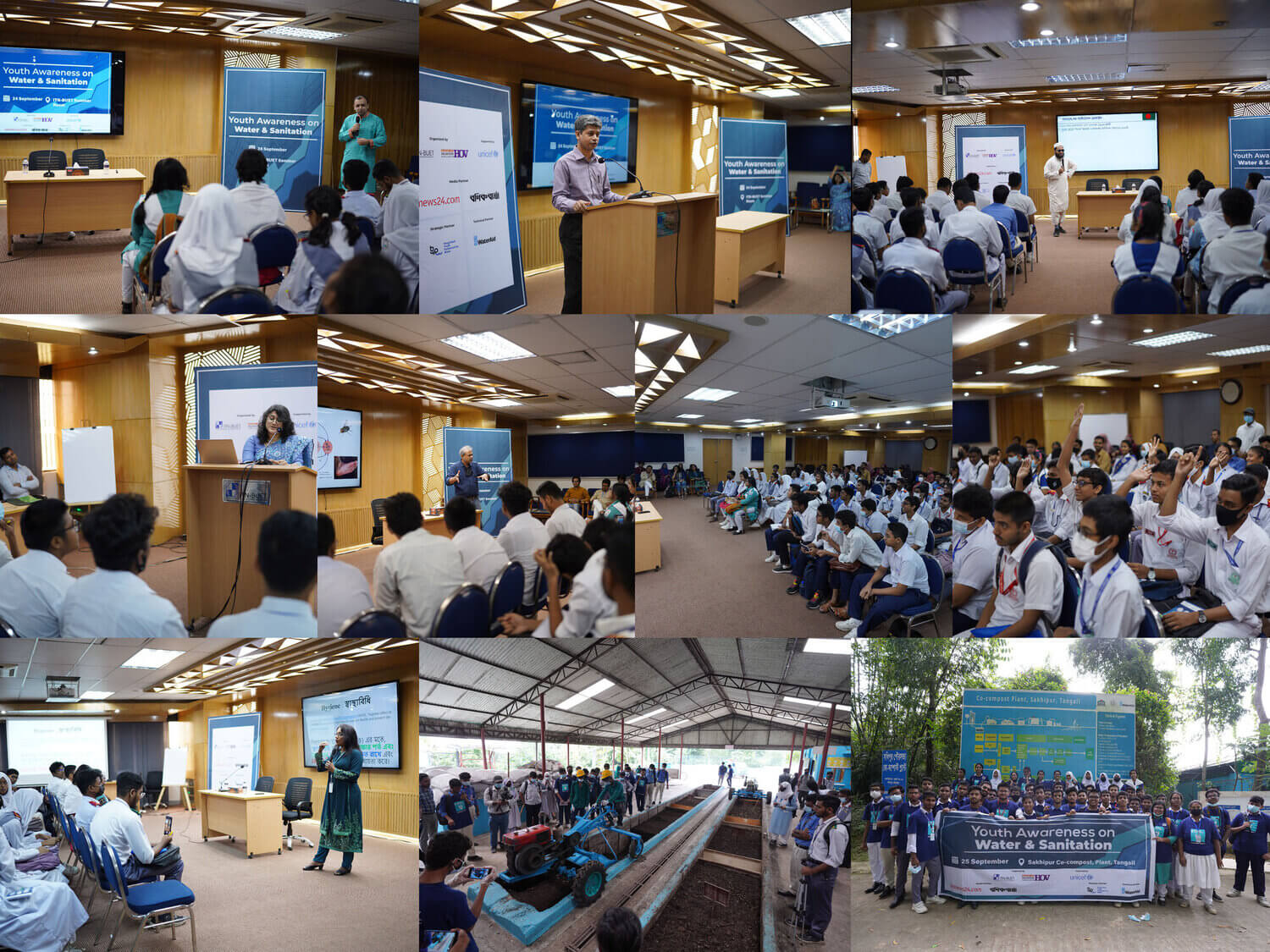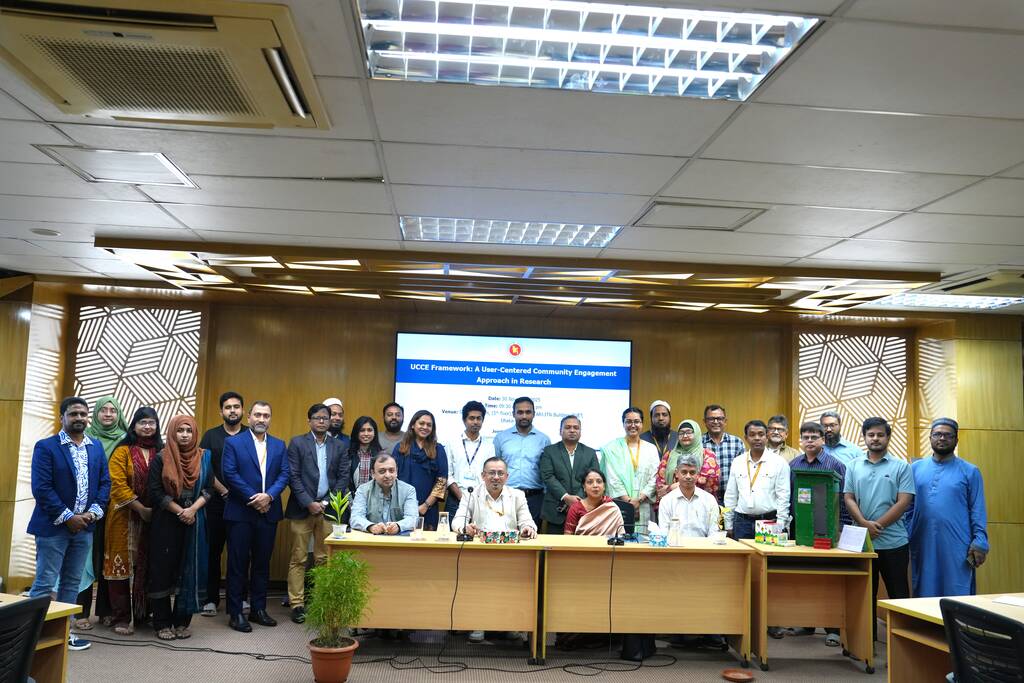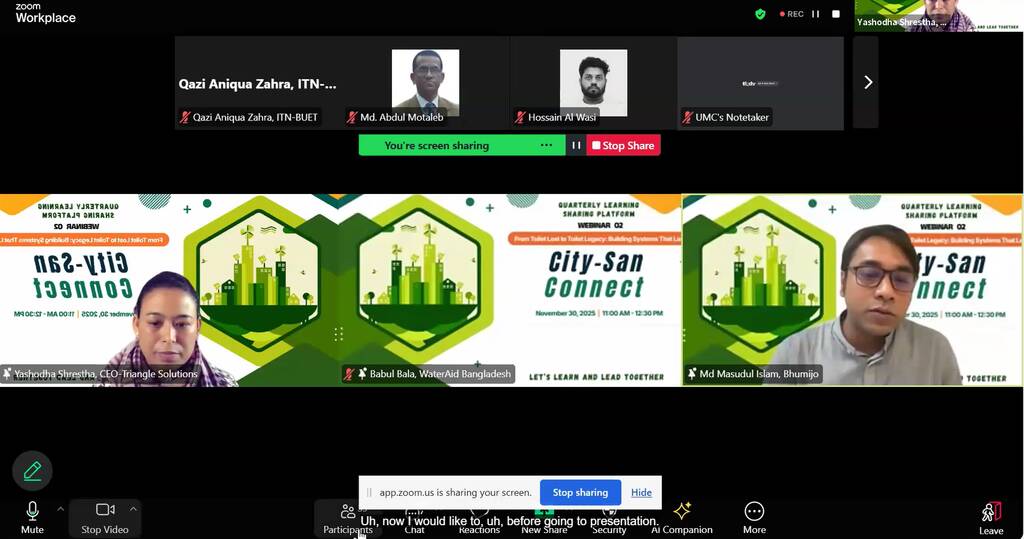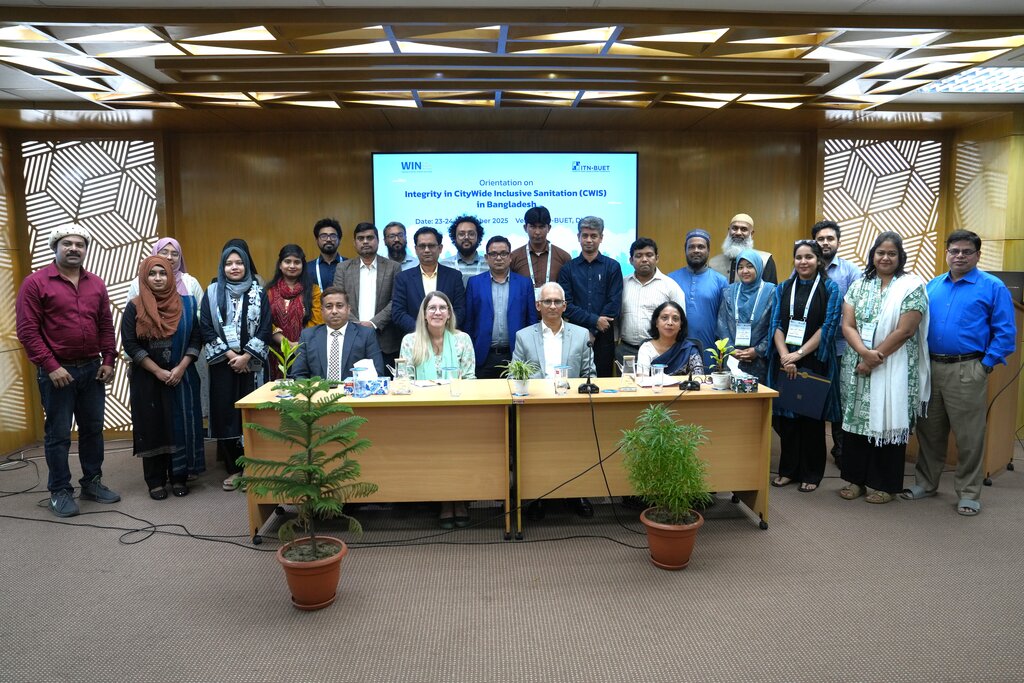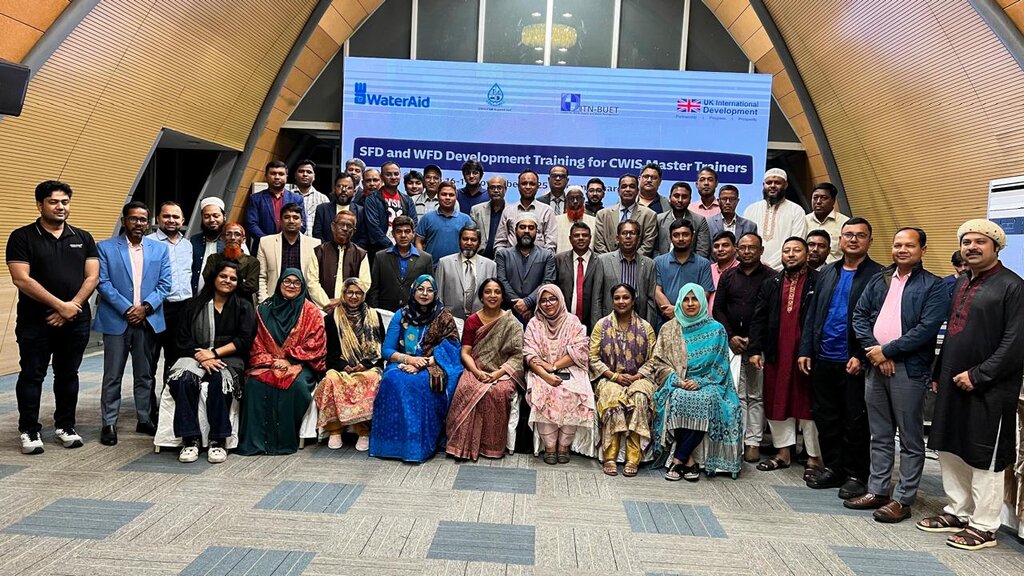A knowledge-sharing session with students on water and sanitation related challenges in Bangladesh was arranged at ITN-BUET on 24th September 2022. The participants also enjoyed the opportunity to experience a full-day field trip to the Fecal Sludge Treatment Plant at Sakhipur, Tangail on 25 September to understand and observe various technologies used in sludge management.
The program was organized by ITN-BUET, in association with House of Volunteers Foundation Bangladesh and supported by UNICEF. The Strategic partner of the program is Bangladesh Youth Parliament for Water, with WaterAid Bangladesh as technical partners and bdnews24.com and Bonik Barta as media partners. Out of the 169 registrations, 60 participants from 13 schools and colleges were given the opportunity to join the lecture session and field trip.
In the lecture session held on 24 September, the speakers emphasized on the current state of sanitation and discuss proper ways of sanitation and water management. The facilitators were Sharmistha Debnath (Executive Engineer, Department of Public Health Engineering, Bangladesh), Azizur Rahman (Assistant Director (Research), ITN-BUET), Sanjoy Mukherjee (Social Development Expert, Department of Public Health and Engineering). Guest speakers were Alauddin Ahmed (Project Manager, ITN-BUET), Nargis Akter (WASH Project Officer, UNICEF) and Dr. Tanvir Ahmed (Director, ITN-BUET, Professor, Department of Civil Engineering, BUET).
Firstly, Alauddin Ahmed (Project Manager, ITN-BUET) gave a brief on the issue emphasizing on environmental engineering, sanitation and water management and drew out the relevance with Vision 2041 of Bangladesh. In his introductory remarks, he also highlighted the necessity of hygiene in the context of Bangladesh.
Sharmistha Debnath (Executive Engineer, Department of Public Health and Engineering, Bangladesh) took the session on ‘Water issues and challenges of Bangladesh’. She mentioned some interesting facts in her informative speech regarding the present water management system of Bangladesh, preparation and measures taken within Covid-19 and Menstrual Hygiene. Besides talking about gender discrimination, discrimination against women, she also shared some factual information in the context of Bangladesh. She mentioned that as one-third of our female population were married of before the age of 18, 65 million girls remain out of school, and it would be useful for the present students to have a deeper insight of the contemporary issues.
Azizur Rahman (Assistant Director (Research), ITN-BUET) took the session on Sanitation. He discussed about the sanitation system of Bangladesh, sanitation habits of people, human waste, SDG-6, the importance of ensuring proper sanitation for all within 2030, the importance of washing hands regularly, sanitation value chain, the need for using developed sanitation system and so on.
Sanjoy Mukherjee (Social Development Expert, Department of Public Health and Engineering) took the session on Hygiene. Nargis Akter (WASH Project Officer, UNICEF) also delivered her informative speech addressing the subject issue and shared her experience of working in the field of WASH. The participants from different educational institutions actively participated and interacted with the honorable speakers throughout the session.
On 25 September, a field trip to Sakhipur Co-compost Plant, Tangail was organized by ITN-BUET and HoV. The objective of the trip is for the students to get real-life experience about proper way of sanitation and waste management. BASA and WaterAid, in association with Sakhipur Municipality, help to operate this plant. 15 girls and 42 boys attended the field trip. Two representatives from WaterAid also accompanied the team. They were Zarif Oeshik (Young professional) and Shakhawat Hossain (Programme Officer-Engineer) who guided the participants throughout the field trip.
The participants were taken to different parts of the co-compost plant to observe and learn various procedures of fecal sludge management. Each component was explained to the students along with the knowledge of how they operate and what were their limitations. Participants also questioned them and they were highly intrigued to learn deeply about faecal sludge management. Mr. Shakhawat Hossain mainly guided those participants. The participants mainly learnt about how fecal sludge was collected from households, how constructed wetland is used to treat the liquid wastewater, how the co-composting is done with solid waste collected from households, how saw-dust is used to control moisture, how ‘Sakhi compost’ is produced and used as a soil-conditioner.
Tanzim, one of the participants from Govt. Science College expressed,
This field trip is very special to me as I got hands-on experience about a variety of technologies used in sludge management. It also helped us to know how we can use the by-products of the process in other sectors. Hopefully, it will help us to supplement our book-centred knowledge to a great extent.


